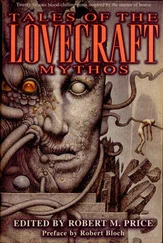Robert Pirsig - Lila. An Inquiry Into Morals
Здесь есть возможность читать онлайн «Robert Pirsig - Lila. An Inquiry Into Morals» весь текст электронной книги совершенно бесплатно (целиком полную версию без сокращений). В некоторых случаях можно слушать аудио, скачать через торрент в формате fb2 и присутствует краткое содержание. Жанр: Современная проза, на английском языке. Описание произведения, (предисловие) а так же отзывы посетителей доступны на портале библиотеки ЛибКат.
- Название:Lila. An Inquiry Into Morals
- Автор:
- Жанр:
- Год:неизвестен
- ISBN:нет данных
- Рейтинг книги:3 / 5. Голосов: 1
-
Избранное:Добавить в избранное
- Отзывы:
-
Ваша оценка:
- 60
- 1
- 2
- 3
- 4
- 5
Lila. An Inquiry Into Morals: краткое содержание, описание и аннотация
Предлагаем к чтению аннотацию, описание, краткое содержание или предисловие (зависит от того, что написал сам автор книги «Lila. An Inquiry Into Morals»). Если вы не нашли необходимую информацию о книге — напишите в комментариях, мы постараемся отыскать её.
Lila. An Inquiry Into Morals — читать онлайн бесплатно полную книгу (весь текст) целиком
Ниже представлен текст книги, разбитый по страницам. Система сохранения места последней прочитанной страницы, позволяет с удобством читать онлайн бесплатно книгу «Lila. An Inquiry Into Morals», без необходимости каждый раз заново искать на чём Вы остановились. Поставьте закладку, и сможете в любой момент перейти на страницу, на которой закончили чтение.
Интервал:
Закладка:
Suddenly, before the old Victorians' eyes, a whole new social caste, a caste of intellectual Brahmins, was being created above their own military and economic castes. These new Brahmins felt they could look down on them and, through the political control of the Democratic Party, push them around. Social snobbery was being replaced with intellectual snobbery. Brain trusts, think tanks, academic foundations were taking over the whole country. It was joked that Thorstein Veblen’s famous intellectual attack on Victorian society, The Theory of The Leisure Class, should be updated with a new one called The Leisure of The Theory Class. A new social class had arrived: the theory class, which had clearly put itself above the social castes that dominated before its time.
Intellectualism, which had been a respected servant of the Victorian society, had become society’s master, and the intellectuals involved made it clear they felt that this new order was best for the country. It was like the replacement of Indians by pioneers. That was too bad for the Indians but it was an inevitable form of progress. A society based upon scientific truth had to be superior to a society based on blind unthinking social tradition. As the new scientific modern outlook improved society, these old Victorian hatreds would be lost and forgotten.
And so, from the idea that society is man’s highest achievement, the twentieth century moved to the idea that intellect is man’s highest achievement. Within the academic world everything was blooming. University enrollments zoomed. The Ph.D. was on its way to becoming the ultimate social status symbol. Money poured in for education in a flood the academic world had never seen. New academic fields were expanding into new undreamed-of territories at a breathless pace, and among the most rapidly expanding and breathless fields of all was one that interested Phædrus more than any other: anthropology.
Now the Metaphysics of Quality had come a long way from his days of frustrated reading about anthropology in the mountains of Montana. He saw that during the early decades of this century anthropology’s unassailable Olympian objectivity had had some very partisan cultural roots of its own. It had been a political tool with which to defeat the Victorians and their system of social values. He doubted whether there was another field anywhere within the academic spectrum that so clearly revealed the gulf between the Victorians and the new twentieth-century intellectuals.
The gulf existed between Victorian evolutionists and twentieth-century relativists. The Victorians such as Morgan, Tylor and Spencer presumed all primitive societies were early forms of Society itself and were trying to grow into a complete civilization like that of Victorian England. The relativists, following Boas' historical reconstruction, stated that there is no empirical scientific evidence for a Society toward which all primitive societies are heading.
Cultural relativists held that it is unscientific to interpret values in culture B by the values of culture A. It would be wrong for an Australian Bushman anthropologist to come to New York and find people backward and primitive because hardly anyone could throw a boomerang properly. It is equally wrong for a New York anthropologist to go to Australia and find a Bushman backward and primitive because he cannot read or write. Cultures are unique historical patterns which contain their own values and cannot be judged in terms of the values of other cultures. The cultural relativists, backed by Boas' doctrines of scientific empiricism, virtually wiped out the credibility of the older Victorian evolutionists and gave to anthropology a shape it has had ever since.
That victory is always presented as a victory of scientific objectivity over unscientific prejudice, but the Metaphysics of Quality says deeper issues were involved. The phenomenal sales of Ruth Benedict’s Patterns of Culture and Margaret Mead’s Coming of Age in Samoa indicated something else. When a book about the social customs of a South Sea island suddenly becomes a best seller you know there’s something in it other than an academic interest in Pacific island customs. Something in that book has hit a nerve to cause such a huge public acclaim. The nerve in this case was the conflict between society and intellect.
These books were legitimate anthropological documents but they were also political tracts in the new shift from social to intellectual dominance, in which the reasoning ran: If we have seen scientifically that they can have free sex in Samoa and it doesn’t seem to hurt anybody, then that proves we can have it here and not hurt anybody either. We have to use our intellect to discover what is right and wrong and not just blindly follow our own past customs. The new cultural relativism became popular because it was a ferocious instrument for the dominance of intellect over society. Intellect could now pass judgment on all forms of social custom, including Victorian custom, but society could no longer pass judgment on intellect. That put intellect clearly in the driver’s seat.
When people asked, If no culture, including a Victorian culture, can say what is right and what is wrong, then how can we ever know what is right and what is wrong? the answer was, That’s easy. Intellectuals will tell you. Intellectuals, unlike members of studiable cultures, know what they’re talking and writing about, because what they say isn’t culturally relative. What they say is absolute. This is because intellectuals follow science, which is objective. An objective observer does not have relative opinions because he is nowhere within the world he observes.
Good old Dusenberry. This was the same hogwash he had denounced in the 1950s in Montana. Now, with the added perspective on the twentieth century provided by the Metaphysics of Quality, you could see its origins. An American anthropologist could no more embrace non-objectivity than a Stalinist bureaucrat could play the stock market. And for the same kind of ideological, conformist reasons.
Now, it should be stated at this point that the Metaphysics of Quality supports this dominance of intellect over society. It says intellect is a higher level of evolution than society; therefore, it is a more moral level than society. It is better for an idea to destroy a society than it is for a society to destroy an idea. But having said this, the Metaphysics of Quality goes on to say that science, the intellectual pattern that has been appointed to take over society, has a defect in it. The defect is that subject-object science has no provision for morals. Subject-object science is only concerned with facts. Morals have no objective reality. You can look through a microscope or telescope or oscilloscope for the rest of your life and you will never find a single moral. There aren’t any there. They are all in your head. They exist only in your imagination.
From the perspective of a subject-object science, the world is a completely purposeless, valueless place. There is no point in anything. Nothing is right and nothing is wrong. Everything just functions, like machinery. There is nothing morally wrong with being lazy, nothing morally wrong with lying, with theft, with suicide, with murder, with genocide. There is nothing morally wrong because there are no morals, just functions.
Now that intellect was in command of society for the first time in history, was this the intellectual pattern it was going to run society with?
As far as Phædrus knew, that question has never been successfully answered. What has occurred instead has been a general abandonment of all social moral codes, with a repressive society used as a scapegoat to explain any and every kind of crime. Twentieth-century intellectuals noted that Victorians believed all little children were born in sin and needed strict discipline to remove them from this condition. The twentieth-century intellectuals called that rubbish. There is no scientific evidence that little children are born in sin, they said. The whole idea of sin has no objective reality. Sin is simply a violation of a set of arbitrary social rules which little children can hardly be expected to be aware of, let alone obey. A far more objective explanation of sin is that a collection of social patterns, grown old and corrupt and decadent, tries to justify its own existence by proclaiming that all who fail to conform to it are evil rather than admit any evil of its own.
Читать дальшеИнтервал:
Закладка:
Похожие книги на «Lila. An Inquiry Into Morals»
Представляем Вашему вниманию похожие книги на «Lila. An Inquiry Into Morals» списком для выбора. Мы отобрали схожую по названию и смыслу литературу в надежде предоставить читателям больше вариантов отыскать новые, интересные, ещё непрочитанные произведения.
Обсуждение, отзывы о книге «Lila. An Inquiry Into Morals» и просто собственные мнения читателей. Оставьте ваши комментарии, напишите, что Вы думаете о произведении, его смысле или главных героях. Укажите что конкретно понравилось, а что нет, и почему Вы так считаете.











